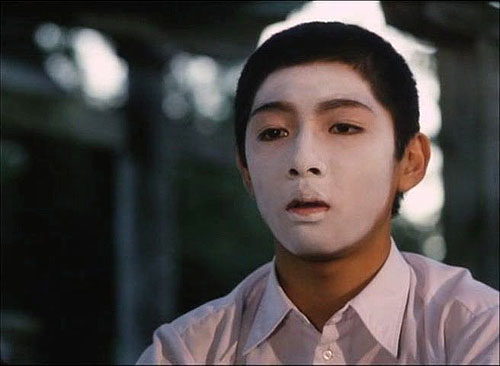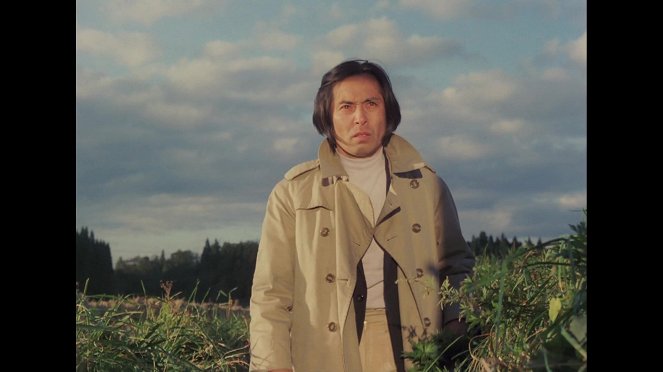Directed by:
Shûji TerayamaCinematography:
Tatsuo SuzukiComposer:
J.A. SeazerCast:
原田芳雄, Masumi Harukawa, Isao Kimura, 八千草薫, 原泉, J.A. Seazer, Keiko Niitaka, Salvador Tari, Kan MikamiVideos (1)
Reviews (1)
Terayama knew. He knew that the past is not something to be remembered, but something that arises only in the present - and without it, it never existed. (The use of the past tense in this sentence is itself incorrect, as it still evokes that it "existed" on a different level than the present, so it is better to say that "the past does not exist without the present." Period.) It is not a memory = Amarcord. ("And the film Amarcord (1973) has it right in its title: “a m’arcord” in the Romagnol dialect, or “io mi ricordo” in Italian, actually means “I remember.” Only collaborators of conventional cinema like Fellini and the common worldview can perceive childhood as a distinct universe, where poetry and eccentricities only serve as representations of a child's view of the world and where this poetry is only an author's tool for pathetic nostalgia, turning back to a world that once existed. On the contrary, Terayama knows. He knows that retrospection is a lie, masking the retroactivity of creative presence. His world of childhood is the world of his adulthood, and his surreal universe signifies only one thing - reality and the product of adult imagination merge into one. There is no difference between memory and fabrication, and ultimately between lies and truth, because such categories could only be preserved in reverence if we believe that the past happened once and for all. If Fellini and others were not afraid to understand their own superficiality and if they were not afraid to seize the surface of the screen in its liberating possibility to place reality and construct on the same level and thus create a truly personal image of childhood.
()
Gallery (13)
Photo © Art Theatre Guild


